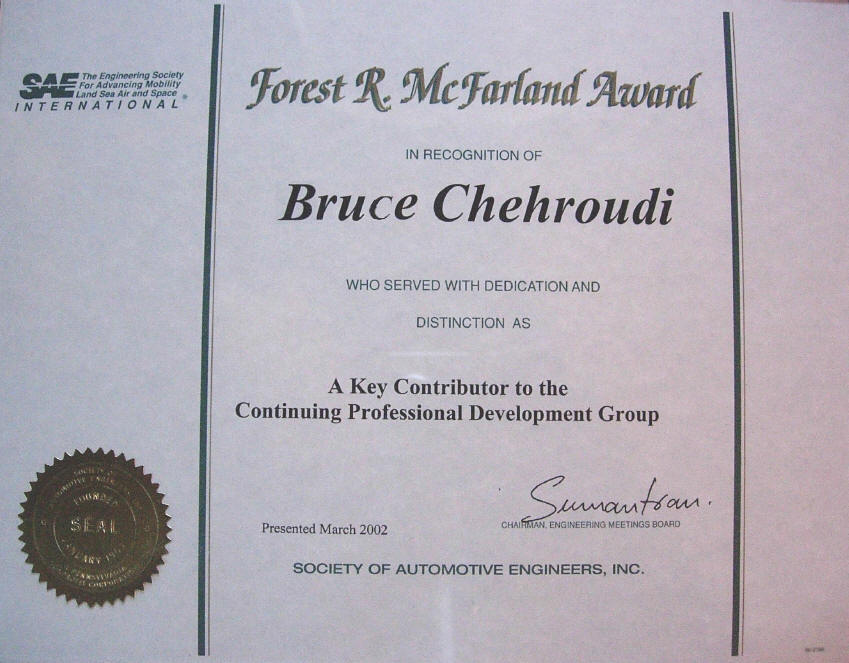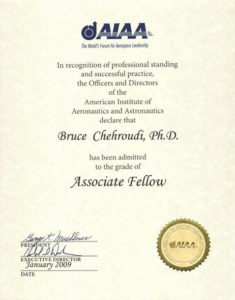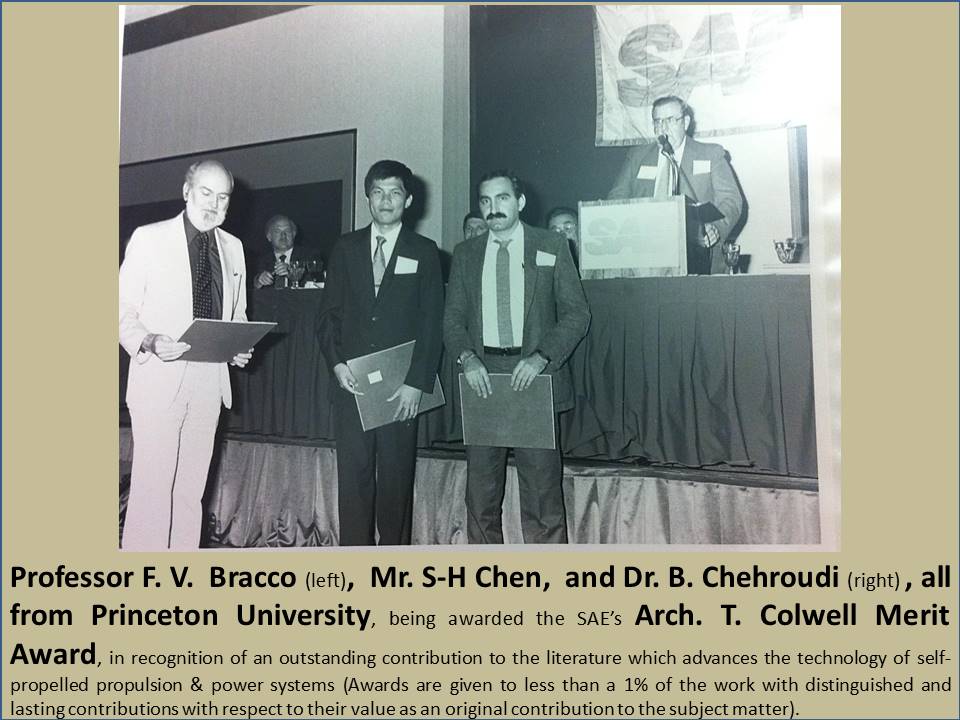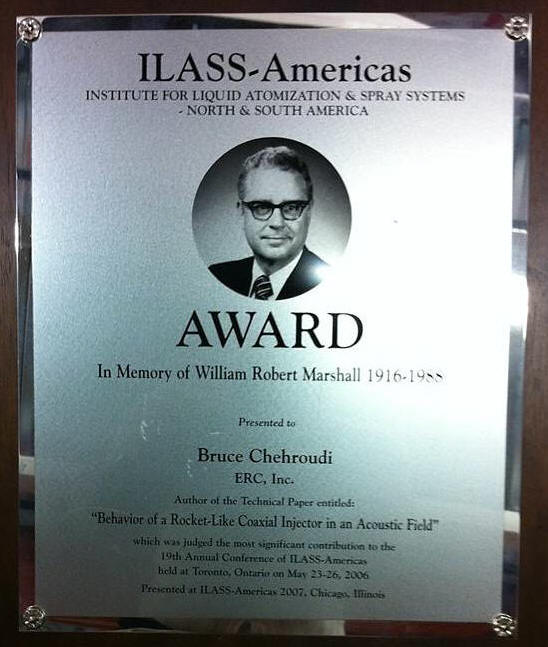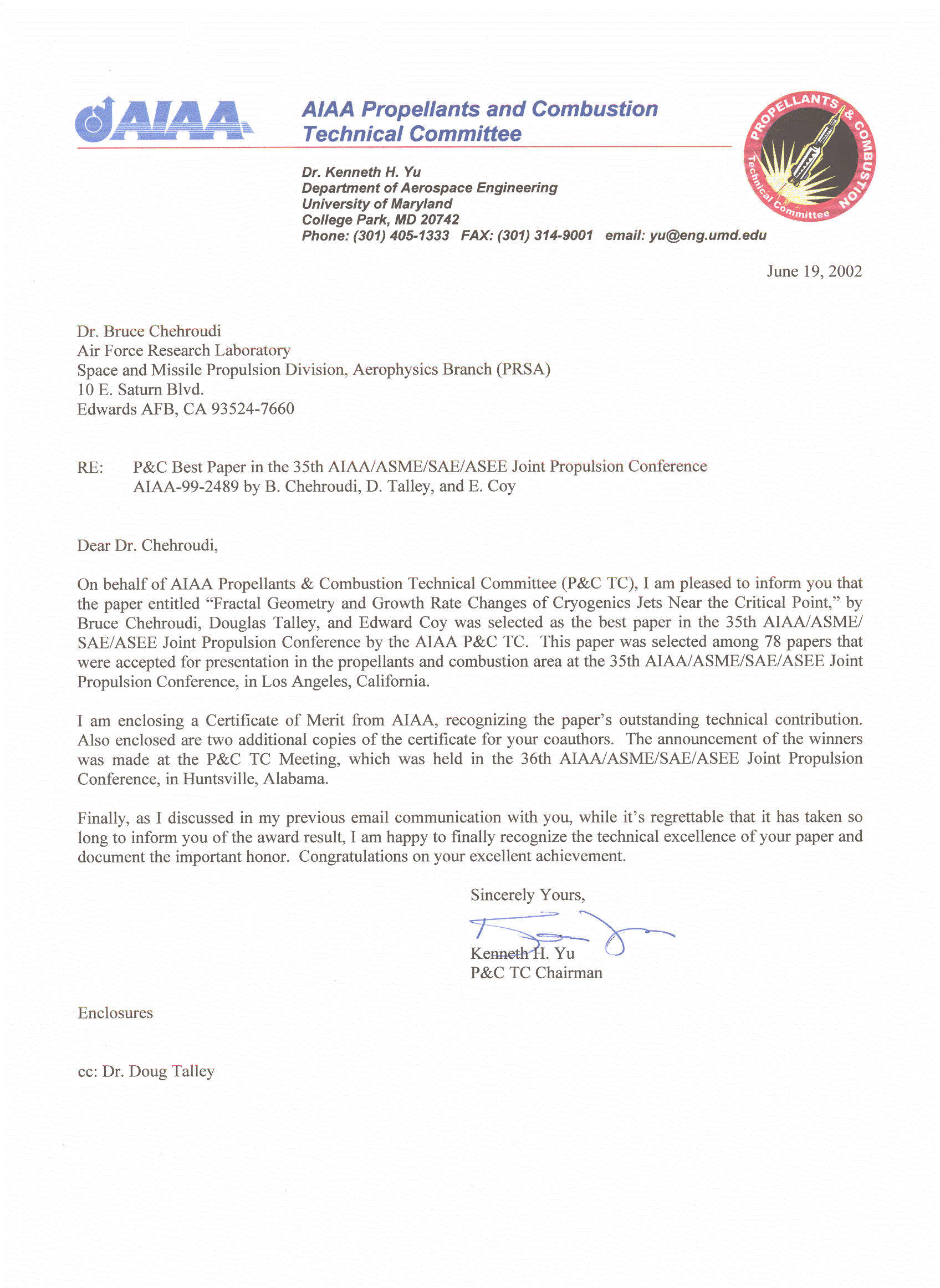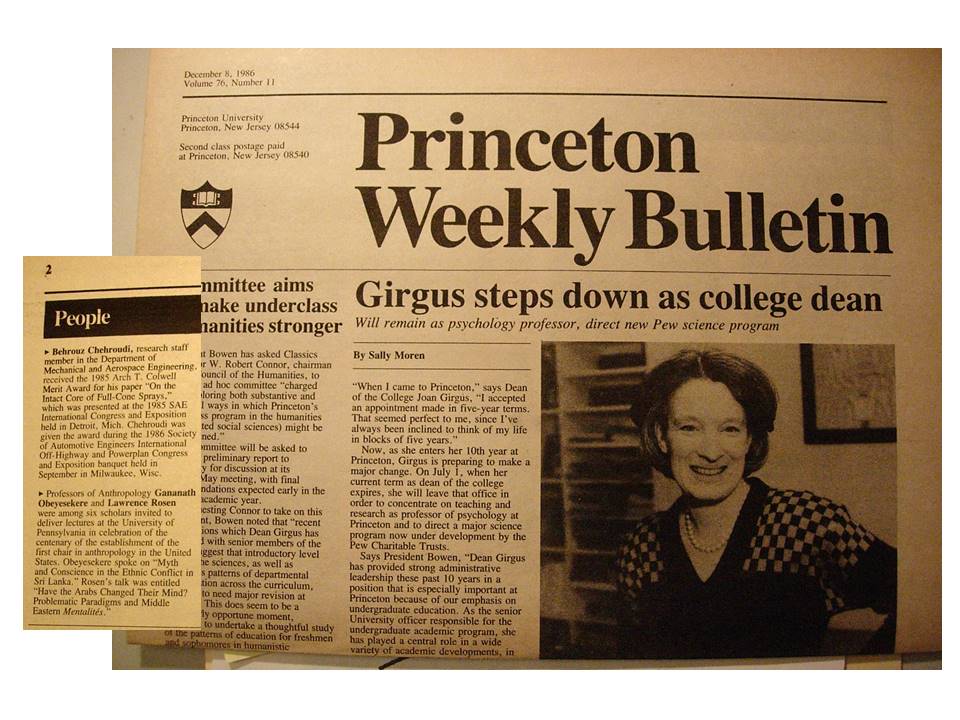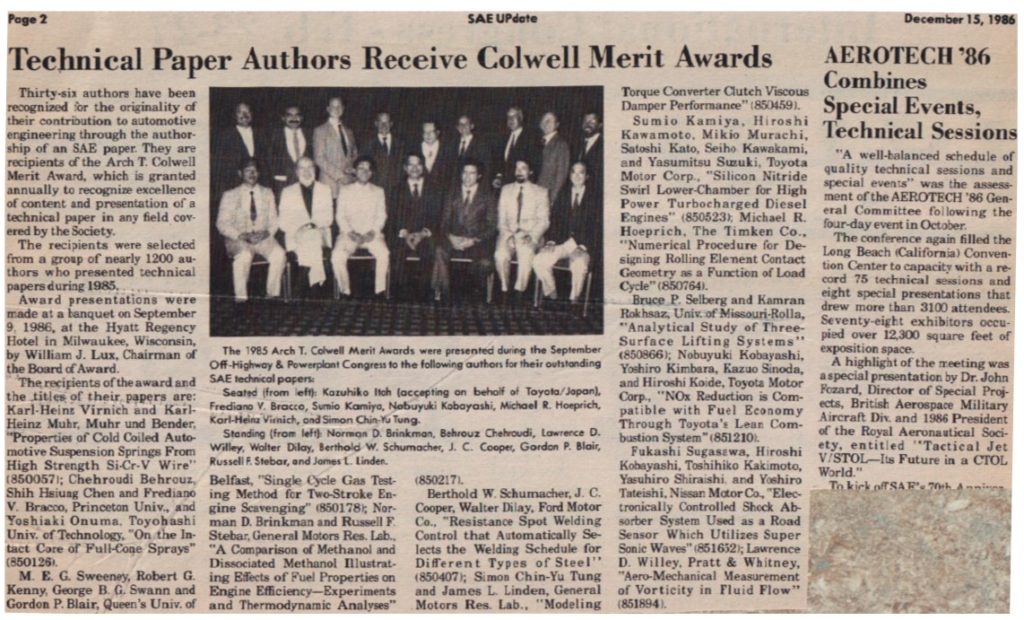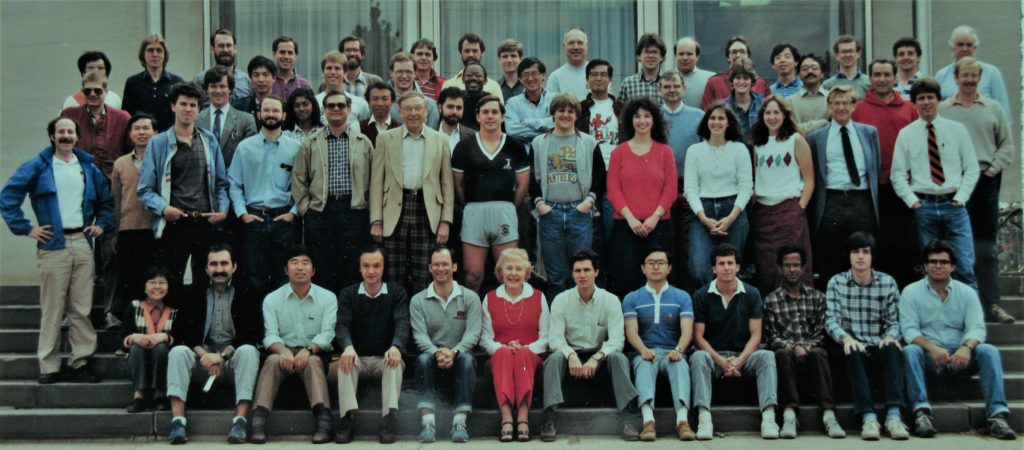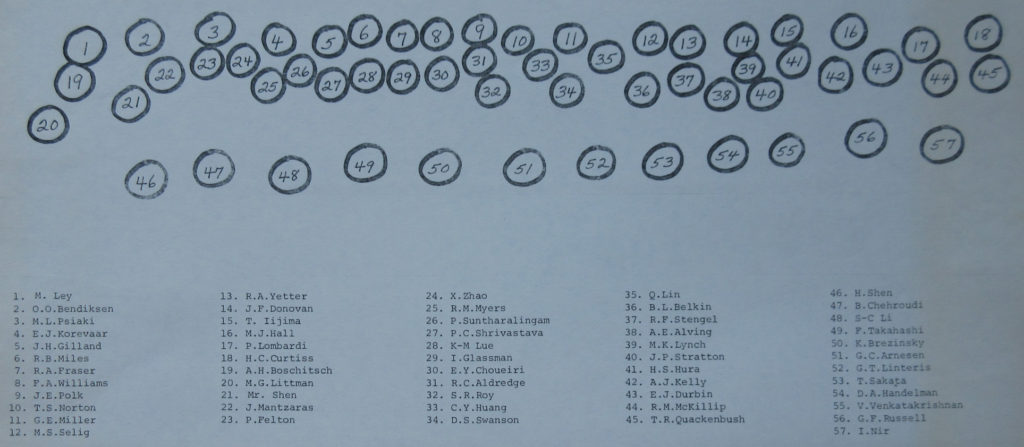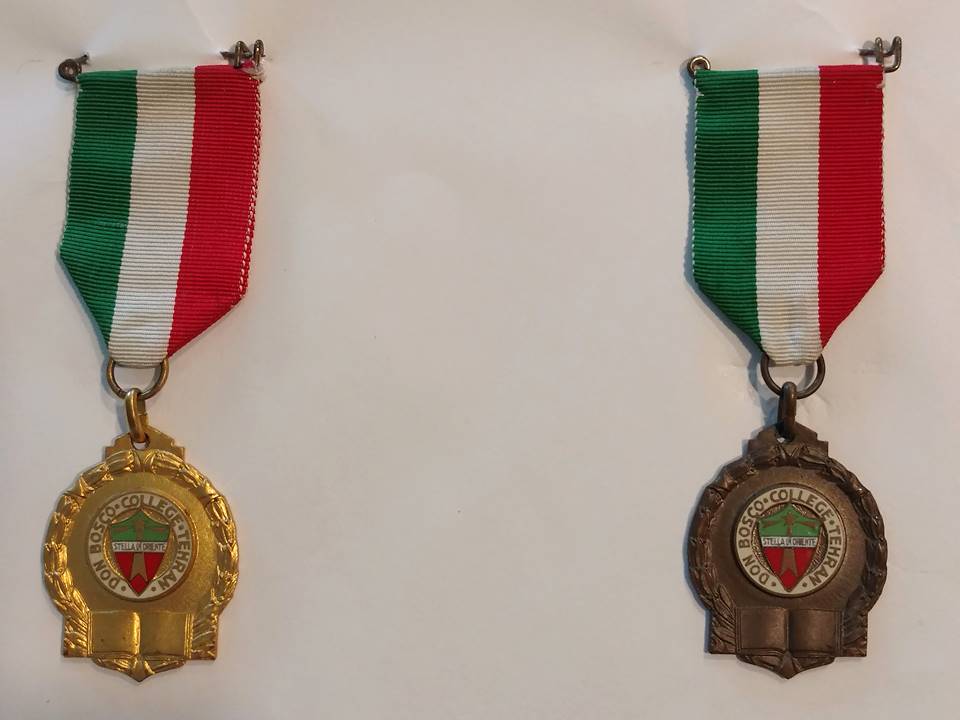Quality work is critical in anything professionals do and one highly reliable way to know "quality research" and "professional achievements" is when it is recognized by peers and granted accolades or awards by prestigious organizations and committees that are well-known to uphold the highest standards of professionalism and award innovative, original, and groundbreaking contributions/discoveries. One original and quality work/publication, setting a new direction in research or removing a difficult barrier in the field, when acknowledged/recognized by an independent, reliable, and anonymous panel of peers, worth many publications. As Charles De Gaulle said "Authority must be accompanied by prestige and prestige comes only from distance" - [Le Fil de lepee, 1934.
..................................................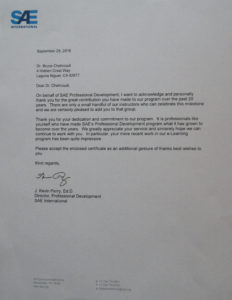 ................ ............................
................ ............................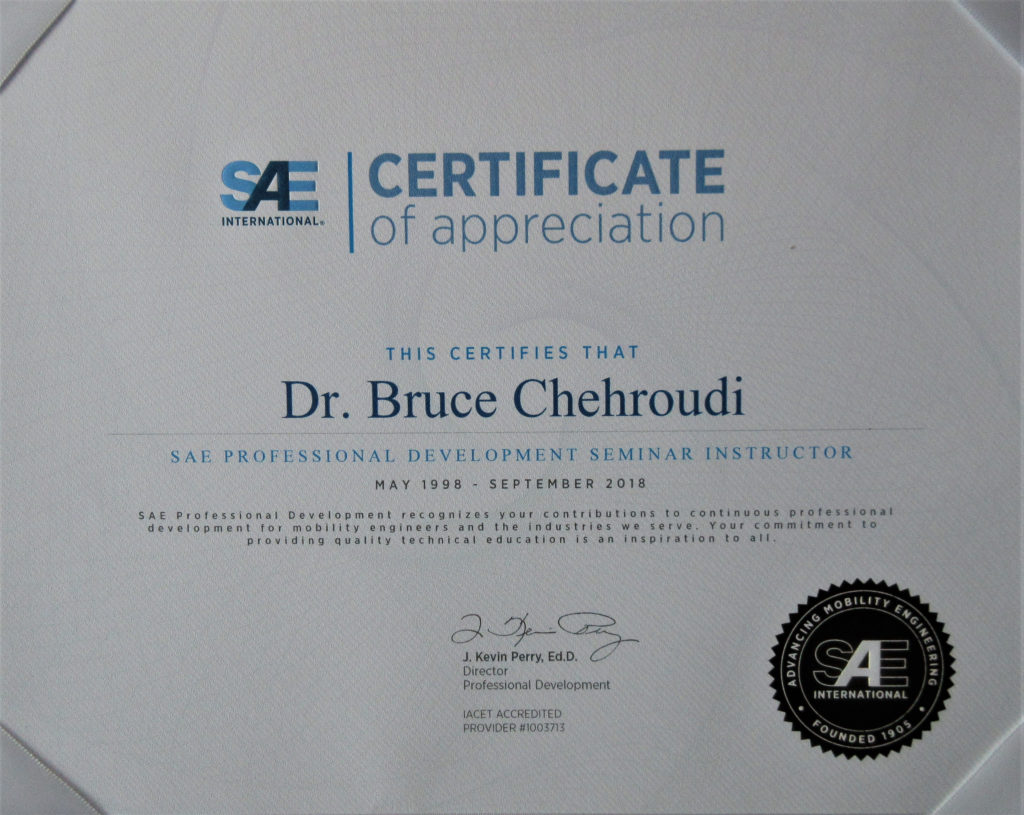 ... ...
... ...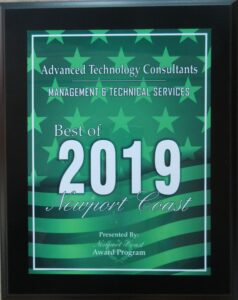 ........................................
........................................
......... 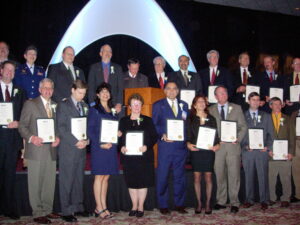 ...................................................................
...................................................................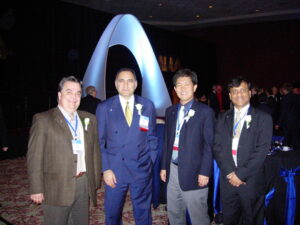 .........
.........
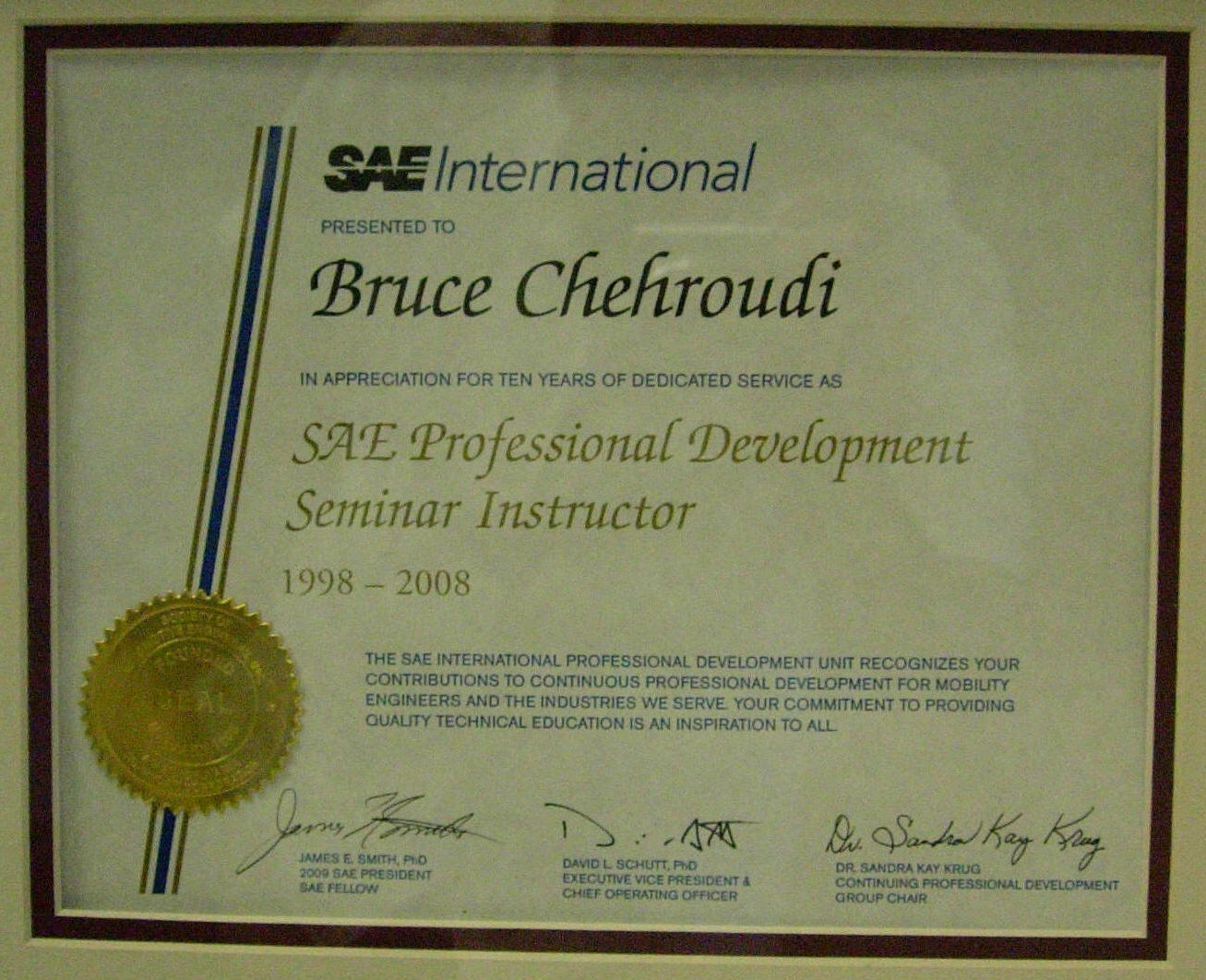
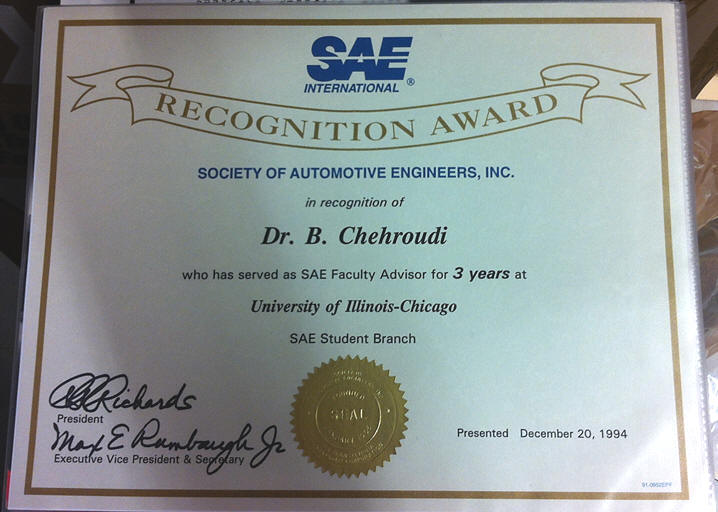
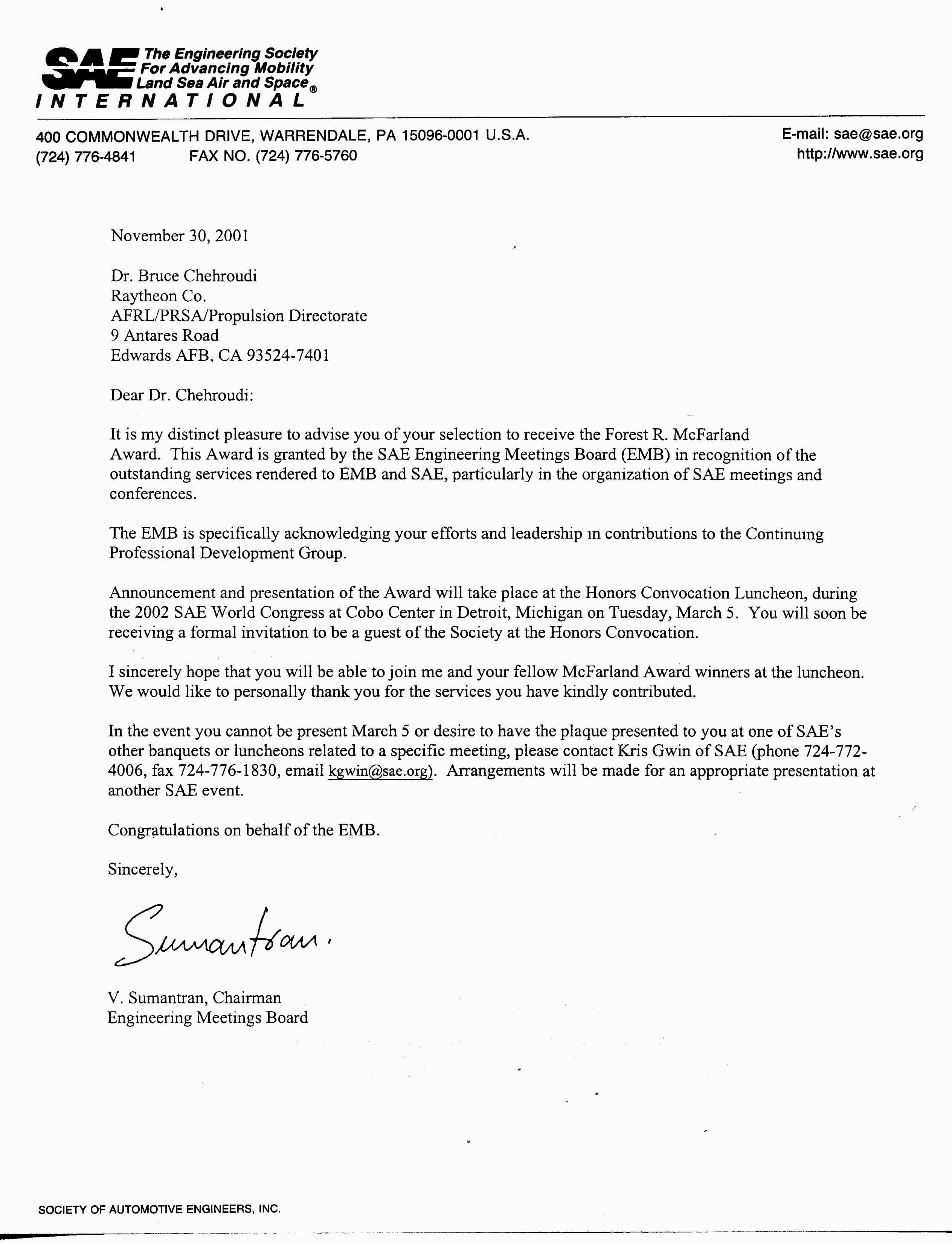
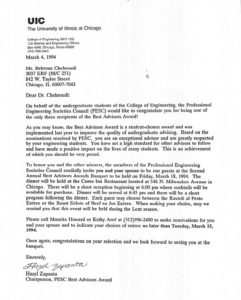
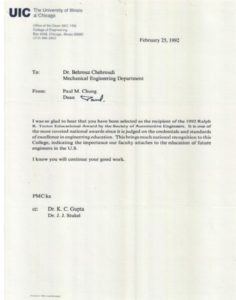
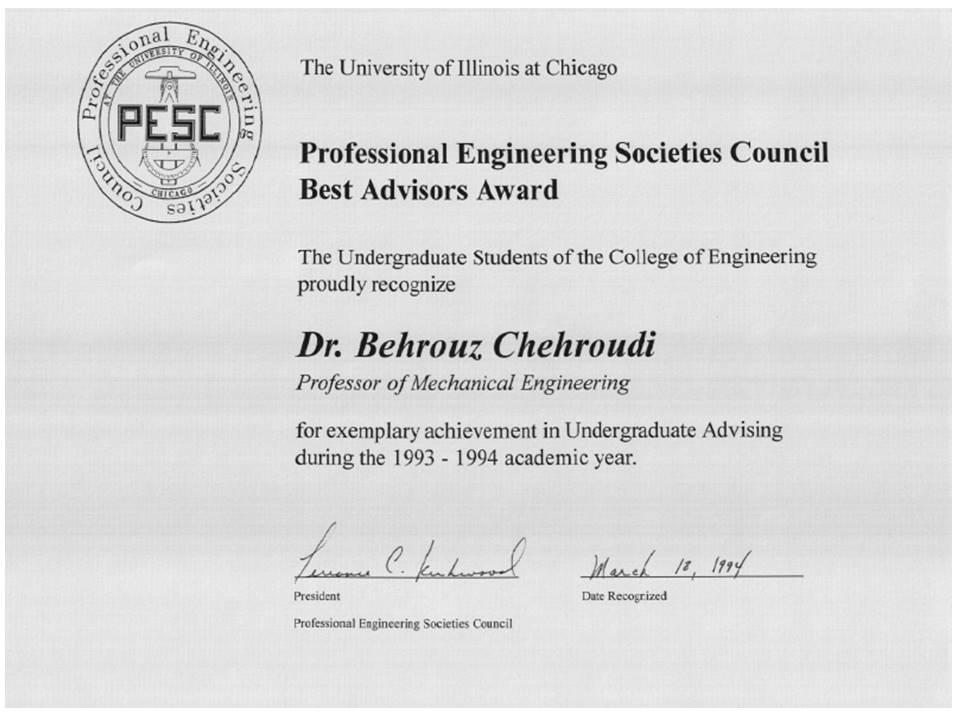
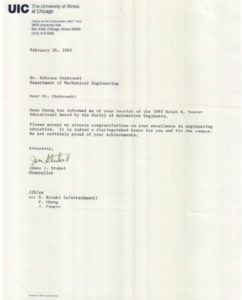
Princeton Weekly Bulletin_ 1986 Chehroudi
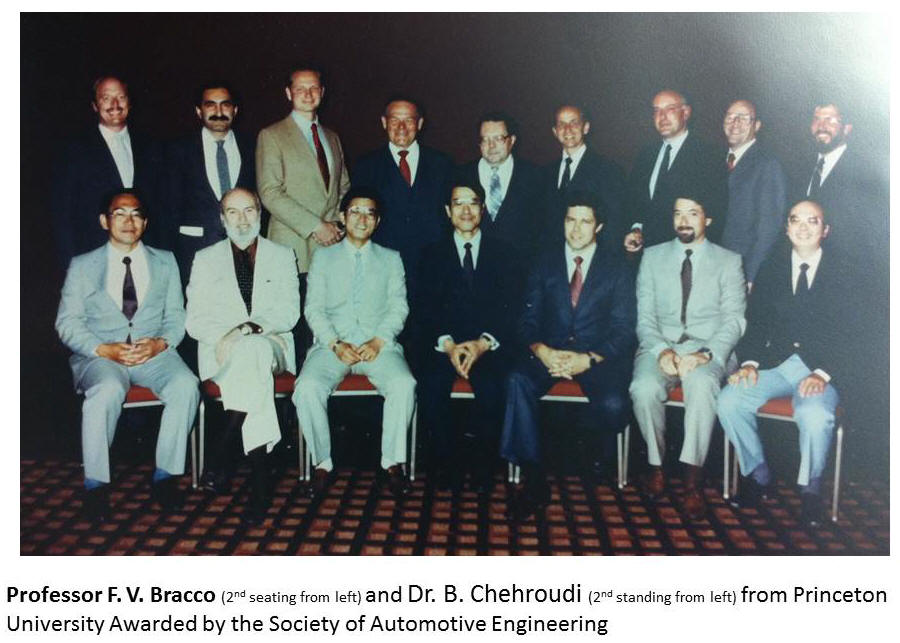
Karl-Heinz, Muhr Und Bender, “Properties of Cold Coiled Automotive Suspension Springs From High Strength Si-Cr-V Wire” (850057)
Chehroudi Behrouz, Shih Hsiung Chen and Frediano V. Bracco, Princeton University, and Yoshiaki Onuma, Toyohashi University of Technology, “On the Intact Core of Full-Cone Sprays”, (850126)
E. G. Sweeney, Robert G. Kenny, Georg G. G. Swann, and Gordon P. Blair, Queen’s University of Belfast, “Single Cycle Gas Testing Method for Two-Stroke Engine Scavenging”, (850178)
Norman D. Brinkman and Russell F. Stebar, General Motors Research Lab, “A Comparison of Methanol and Dissociated Methanol Illustrating Effects of Fuel Properties on Engine Efficiency – Experiments and Thermodynamic Analysis”, (850217).
Berthold W. Schmacher, J. C. Cooper, Walter Dilay, Ford Motor Company, “Resistance Spot Welding Control that Automatically Selects the Welding Schedule for Different Types of Steel”, (850407)
Simon Chin-Yu Tung and James L. Linden, General Motors Research Lab, “Modeling Torque Converter Clutch Viscous Damper Performance”, (850459).
Sumio Kamiya, Hiroshi Kawamoto, Mikio Murachi, Saroshi Kato, Seiho Kawakami, and Yasumitsu Suzuki, Toyota Motor Corp., “Silicon Nitride Swirl Lower-Chamber for High Power Turbocharged Diesel Engines”, (850523)
Michael R. Hoeprich, The Timken Co., “Numerical Procedure for Designing Rolling Element Contact Geometry as a Function of Load Cycle”, (850764).
Bruce P. Selberg and Kamran Rokhsaz, University if Missouri-Rolla, “Analytical Study of three-Surface Lifting Systems” (850866).
Nobuyuki Kobayashi, Yoshiro Kimbara, Kazuo Sinoda, and Hiroshi Koide, Toyota Motor Corp., “NOx Reduction is Compatible with Fuel Economy Through Toyota’s Lean Combustion System”, (851210)
Fukashi Sugasewa, Hiroshi Kobayashi, Toshihiko Kakimoto, Yasuhiro Shiraishi, and Yoshiro Tateishi, Nissan Motor Co., Electronically Controlled Shock Absorber System Used as a Road Sensor Which Utilizes Super Sonic Waves”, (851632).
Lawrence D. Willey, Pratt & Whitney, “Aero-Mechanical Measurements of Vorticity in Fluid Flow”, (851894)
Professors, graduate research assistants, and research staff members
Mechanical and Aerospace Engineering
Princeton University
The Frederick E. Terman Award was established by the faculty of the Lyle School of Engineering to recognize the late Dr. Frederick E. Terman who served on the Board of Directors of the former SMU Foundation for Science and Engineering from 1965-1977 and as its first president. The awards are awarded each year to graduate students whose scholastic attainments and contributions to the School are judged to be in the highest tradition, which is exemplified by Dr. Terman.
The Tau Beta Pi is the only engineering honor society representing the entire engineering profession. It is the nation's second-oldest honor society, founded at Lehigh University in 1885 to mark in a fitting manner those who have conferred honor upon their Alma Mater by distinguished scholarship and exemplary character as students in engineering, or by their attainments as alumni in the field of engineering, and to foster a spirit of liberal culture in engineering colleges.

